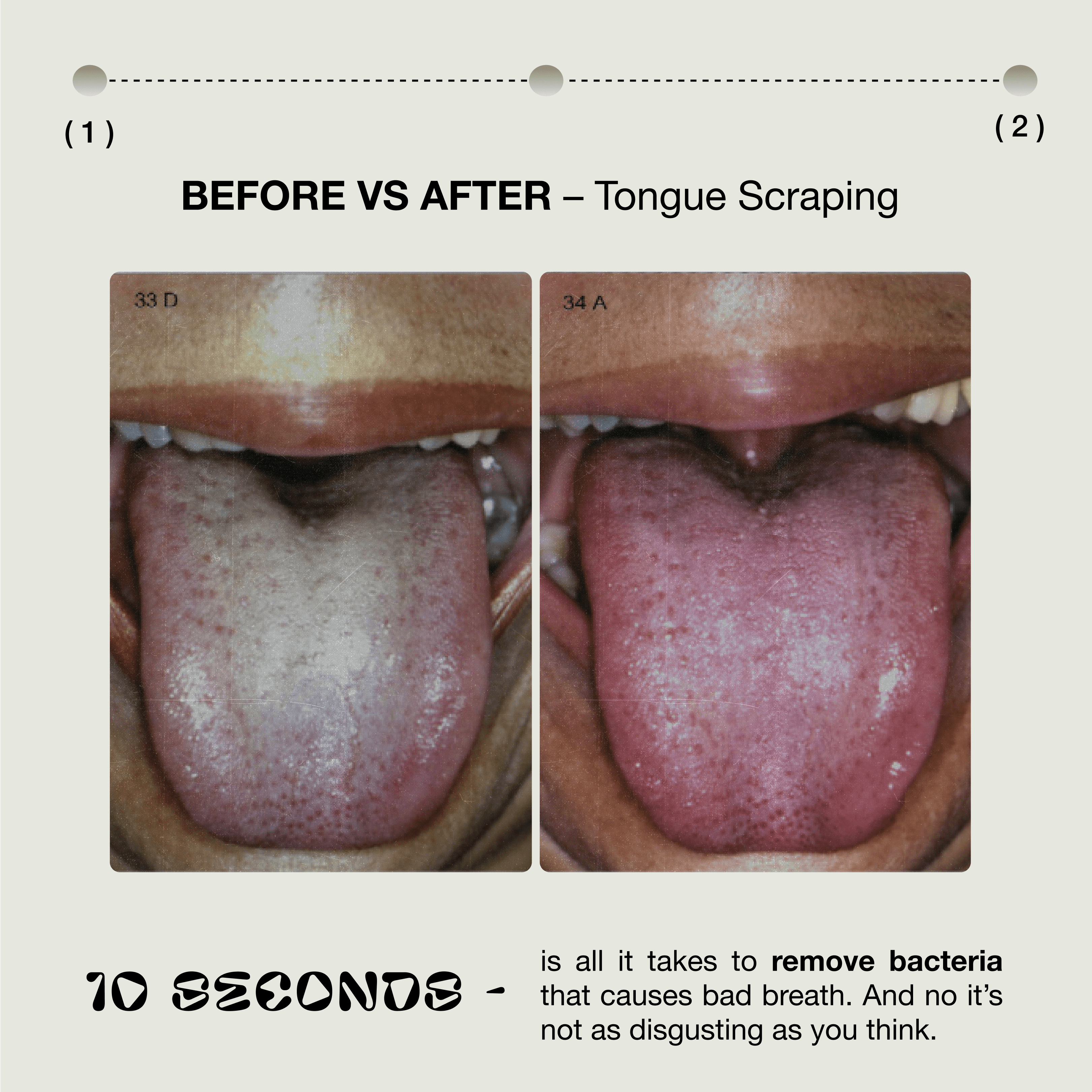
The Morning Breath Wake-Up Call
Let’s paint a scene you may know a little too well. You’re standing in the bathroom, half awake, staring at your mirror. You yawn, exhale… and wow. Danger zone! You’re suddenly aware your morning breath could scare away the bravest housecat. Maybe you’ve brushed and flossed—heck, even swished your fanciest mouthwash—but something clings. That weird fuzzy feeling on your tongue? Yeah… it’s not imaginary. And you’re not alone.
So what if I told you a $3 gadget—this humble little thing called a tongue scraper—might be the missing link in your mouth game? I know, sounds almost too simple, but stick with me. Today I’m laying out the tongue scraper pros and cons, the truth, the “ugh, really?” and the “hold on, that’s amazing!” parts. Let’s get super real, because nobody’s got time for more wellness snake oil.
Unseen Troubles Lurking
Let’s start at the root. Have you ever peeked at your tongue and realized it looks a bit… coated? Kind of white or yellowish? Turns out, that’s not just lunch leftovers. Bacteria, food bits, dead cells—all throwing their own wild rave, especially at the back of your tongue, the spot your toothbrush rarely reaches. Science says our tongue harbors more bacteria than any other place in your mouth (research on bacterial accumulation).
Why care? These critters break down proteins and release stinky sulfur compounds. Bad breath, anyone? According to research on tongue scraping’s impact on bad breath, the tongue’s film can tilt the balance of your mouth bacteria the wrong way, leading to more smell and more issues. The longer this party goes on, the harder it gets to keep a clean, fresh smile.
Can Scraping Really Fix Stubborn Breath?
Honestly? Yes, for a lot of folks. Studies show tongue scraping removes more of those volatile sulfur compounds (scientifically known as VSCs, but let’s just call them “the stink-makers”) than brushing your tongue alone. I once tried a tongue scraper on a dare from my dentist and—no joke—the difference was wild. My coffee breath? Way less scary.
Here’s a quick side-by-side on how scrapers stack up against brushes:
| Tool | How It Works | Freshness Factor |
|---|---|---|
| Toothbrush | Back-and-forth sweeping, lifts surface debris, not deep | Decent, but doesn’t pull gunk out as well |
| Tongue scraper | C-shaped edge pulls film right off the top layer | Superior—gets more “ick” up fast |
Want a little more evidence? One study on mechanical tongue cleaning found that scraping made the biggest dent in those bad-breath gases. Sure, all tongue cleaning helped, but scrapers were MVPs.
Happy Taste Buds (and Other Surprises)
So now you’re less afraid of talking at close range, but wait—there’s another twist. Multiple studies argue a cleaner tongue can actually turn up your sense of taste (WebMD on tongue scraping benefits). Ever notice how that first cold drink after brushing tastes crisper? Same idea. I swear, after a week of scraping at night, the spice in my tacos hit different. Even dessert felt, dare I say… brighter?
Could Tongue Scraping Level Up Your Meals?
Yep, and it’s not just flavor hype. Over-the-counter studies from universities (yeah, science to the rescue again) saw improved taste for people who scraped twice a day. Your tongue’s papillae—the little taste buds—are freed from the sludge that dulls their signal to your brain. Think of it like cleaning smudges off your glasses. Suddenly, life has more flavor.
Mini Story Time: A “Foodie” Glow-Up
My cousin Mike is a food lover, but he’d lost excitement for most stuff—said everything tasted flat. He tried a scraper after dinner for a week. Next brunch, he took one bite of pancakes and actually grinned. “This syrup tastes…” he paused, searching for drama, “like real maple. Where’s this been all my life?”
Tongue Scraping and Bigger Health Connections
Let’s get a little bit geeky (but not boring, promise). There’s growing chatter about how the state of your mouth isn’t just about teeth—it’s linked to your whole body. Interested in how this connects gut health, digestion, and maybe even heart benefits? Peek at Tongue scraping and gut health for a breakdown of these links. Honestly, the science is in early days, but it’s wild to think a tiny morning habit might nudge bigger things in the right direction.
The Not-So-Sweet Side
Let’s get real: every hack, even one as cheap and easy as tongue scraping, has a couple “hmmm” moments. If you’ve already hit the drugstore, hold on. There’s more you should know, because tongue scraper pros and cons matter for everyone—especially if you like to dive in all-or-nothing style (been there, bought the unnecessary gadgets).
Trouble in Scraper Paradise?
First up: gag reflex. It’s real. Not fun. The first time I tried, I nearly dropped the thing in the sink. If you’re sensitive, start slow, don’t push to the very back, and just laugh it off if you make weird noises. (No shame here—everybody’s gagged at least once.)
Next, over-scraping. Yes, it’s possible! If you press like you’re scraping ice off your windshield, you’ll end up with a sore, maybe even a little bleeding. The goal? Gentle sweeps. The film comes off easily. Power moves? Save them for the gym.
And here’s something you probably haven’t heard at your average oral hygiene pep talk: our tongues play host to good bacteria. It’s not all evil in there. Some researchers, including those quoted by UCLA Health, worry that being too aggressive with cleaning (scraping or brushing) could tip the balance, especially for things like blood pressure since our oral bacteria help convert food nutrients into helpful compounds for our bodies. There’s also a potential for temporary irritation, canker sores, or for those with certain health issues, an increased risk of infection.
It’s worth reading through Tongue scraping side effects to see if any of these potential downsides ring true for you or if you’re just curious about the weird stuff nobody tells you.
Anecdote: When Things Went Awry
Full confession: I got too excited about my tongue “glow-up” and tried scraping more than twice a day. By Thursday, my tongue was sore, and soup stung like never before. Lesson learned. Gentle, not overzealous, is the vibe.
How to Scrape the Right Way
Ready to give it a shot? All-in isn’t necessary. Here’s how to get going without any drama:
- Grab a tongue scraper. They come in plastic (cheap and easy), or metal (copper’s my personal favorite for its old-school toughness and supposed antimicrobial edge).
- Stand in front of the mirror. Stick your tongue out—farther than you think you need to.
- Place the rounded edge at the back (just beyond your comfort zone, but not so far you gag), and gently pull forward. No pressure-washer moves!
- Rinse the scraper. Repeat 3–5 times, or until things look clean.
- Finish up, rinse your mouth, and grin. Taste test something new if you’re brave.
One pro tip: You don’t need to scrape every hour. Once or twice a day is plenty. You can swap out with brushing (gently) if you want, but the scraper seems to do a tidier job in less time, according to multiple clinical studies (study on oral malodor).
Which Scraper Wins?
Let’s break it down really simply:
| Type | Pros | Cons |
|---|---|---|
| Plastic | Cheap, light, easy for beginners | Wears out, can crack |
| Metal (Steel/Copper) | Durable, “cleaner” feel, some say antimicrobial | Can be cold, slightly pricier |
| Toothbrush | Already own it, works in a pinch | Less effective at pulling out deep gunk |
What About Extra Health Stuff? (Gut, Heart, Whole Body)
This is the cutting-edge section, where new science meets old tradition. Some researchers speculate a cleaner, more balanced mouth environment might help with digestion, because it keeps your mouth and gut bacteria in harmony. There’s even talk about blood pressure ties—remember those oral bacteria that make nitric oxide?—but the science here is still new. If you want a deep dive, check out Tongue scraping and gut health.
For now, it’s safe to say there’s potential… but we’re not quite at “miracle cure” status. Small habit, possibly big ripple—intriguing, right?
Your Move? Let’s Be Honest…
You’ve heard the tongue scraper pros and cons. No hype, no scary warnings—just the honest scoop from someone who’s tried it, messed up a bit, and laughed along the way. To recap the biggies:
- Pros: Less bad breath, sharper taste, cleaner look, maybe even a slight health upgrade for true wellness geeks. Cheap, quick, and (if you’re into it) weirdly satisfying.
- Cons: Gagging if you go for broke at first, mild irritation or discomfort if you’re too rough, rare risk of messing up your mouth’s healthy bacteria if you overdo it. No magic; just a tool.
Things to watch for? Read up on Tongue scraping side effects if you’re nervous. Try it gently, tune in to how your mouth and breath feel, and if you’re happy, keep going.
This isn’t “one trick fixes all.” But sometimes, it’s the little changes—the forgotten tools—that make you smile, eat, and chat more comfortably. The bottom line?
Give it a whirl this week. It might just be the tiny, affordable self-care switch that sticks. If you love it, bring your friends in on the secret (the brave ones, anyway). Either way, you’ll know you took a real, honest look at your mouth’s health—no more hiding behind your coffee mug.
Here’s to less awkward morning breath, more bold flavor, and one less thing for your “ugh, adulting” list. Your future self—bold breath, cheeky smile and all—just might thank you.

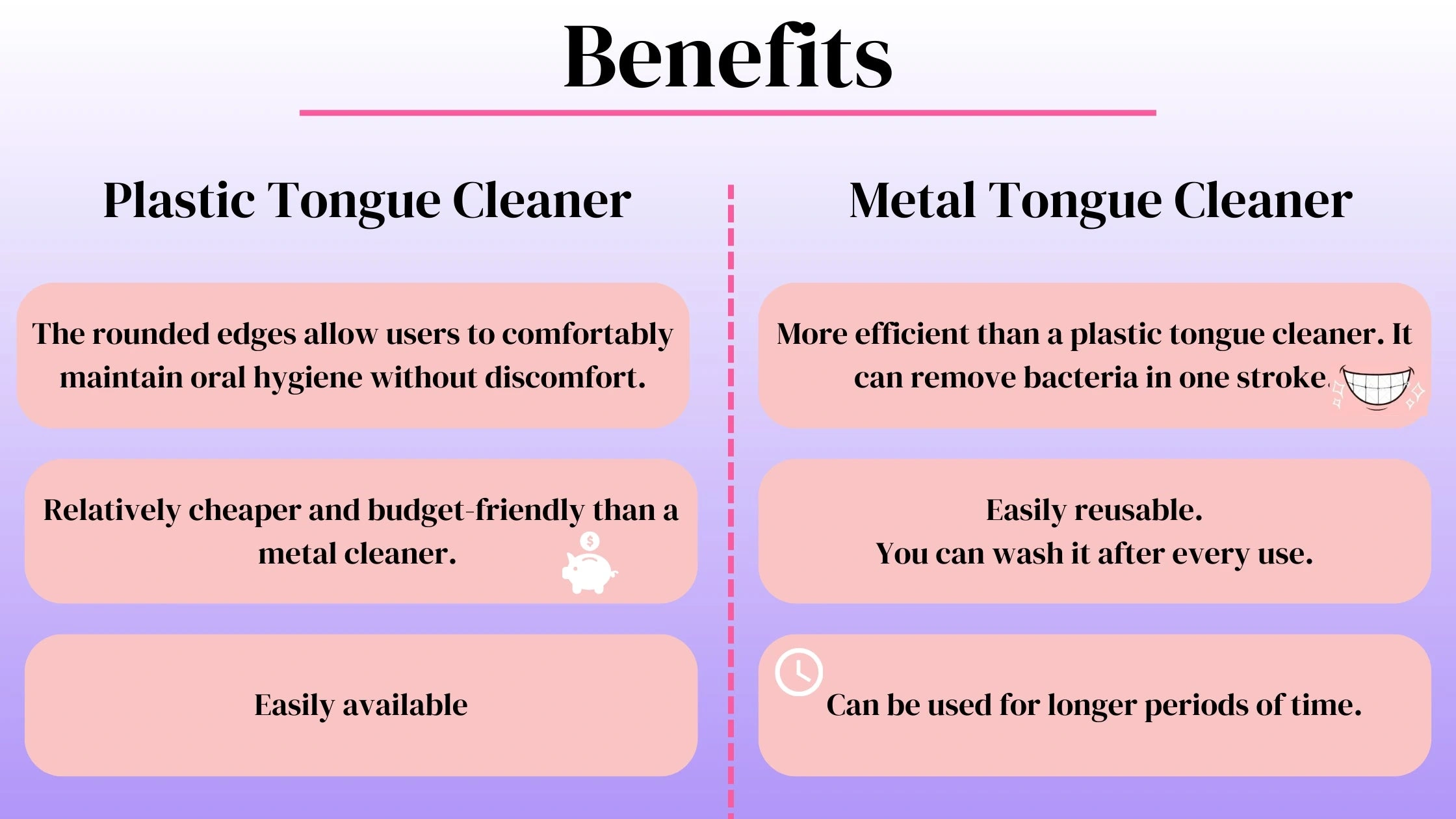


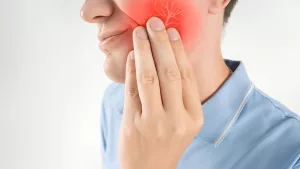
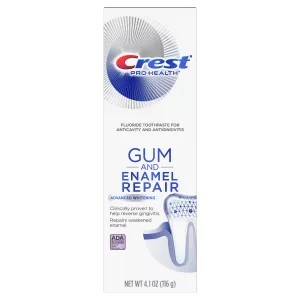

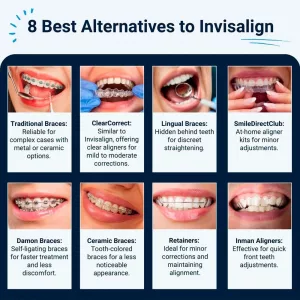
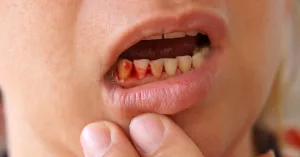



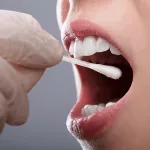




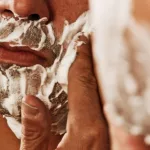
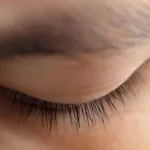






Leave a Reply
You must be logged in to post a comment.